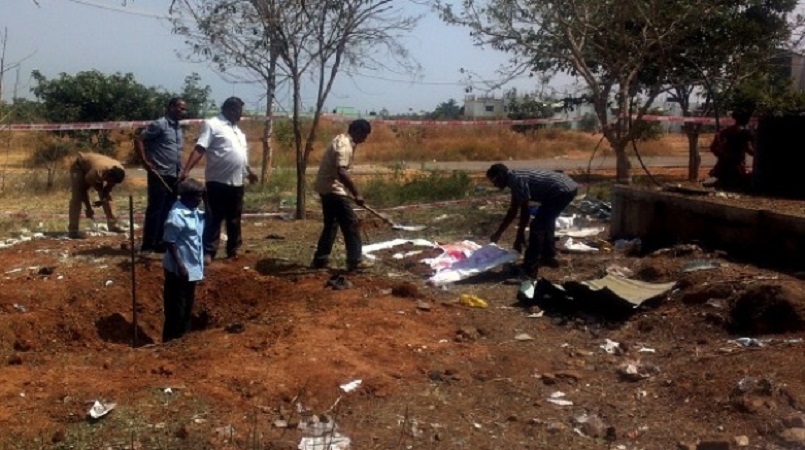
As a bus driver in India, avoiding fast oncoming danger was his trade.
But there was nothing V. Kamaraj could do when, as he washed his face at an outdoor water tower during his lunch break, he became the first person in modern recorded history to be struck dead by a meteorite.
That is the only explanation authorities have for the bizarre demise of the 40-year-old, who was last seen relaxing in the grounds of Bharathidasan Engineering College in the southern Indian state of Tamil Nadu at noon on Saturday when an explosion was heard.
Once the dust and heavy smoke had cleared, Mr Kamaraj was spotted lying unconscious next to a two-foot wide crater, with serious facial injuries. Several window panes were also broken.
"It was a sound like nothing I've ever heard before," said G Baskar, the college's principal. "There was no smell at all, no fire, nothing."
Alternative explanations such as leftover explosives from construction, or a terror attack, were swiftly ruled out by police after no chemical traces were found by forensics teams, leaving authorities with no option but to declare the most unusual of deaths.
"An accident occurred when a meteorite fell in the campus of a private engineering college," said Jayalalithaa Jayaram, Tamil Nadu's chief minister, in a statement on Sunday.
"Kamaraj was severely injured and taken to hospital. On the way there he succumbed to his injuries.
I offer my sincere condolences to Kamaraj's family."
In a country of India's size, meteorite strikes, though still rare, are recorded from time to time.
"At least one or two meteorites fall every year in India, but so far we've not had any damage to property or people," said Prof SVS Murty, of India's Physical Research Laboratory, which analyses rock samples from suspected "falls".
"This is the first time in the history of meteorites falling that somebody died because of a meteorite falling and its consequences in India or anywhere else. Meteorites have not killed a single person so far." The unprecedented death raised doubts among some scientists, who advised caution until lab testing was carried out on rock fragments.
The Institution of Astrophysics in nearby Bangalore yesterday sent a team of scientists to inspect the site following a police request. Rock fragments will need to be tested for extraterrestrial matter, while the possibility of manmade space debris has yet to be ruled out.
"It looks like a meteorite, but we need to be sure," said Niruj Mohan, an astrophysicist. "The larger the meteorite, the fewer there are of them floating around. To find one reaching Earth is not common and to find one this size is even less common."
The victim's family will receive 100,000 rupees (NZ$ 2,200) from the state's public relief fund, with smaller amounts paid out to three others who were injured in the incident.
